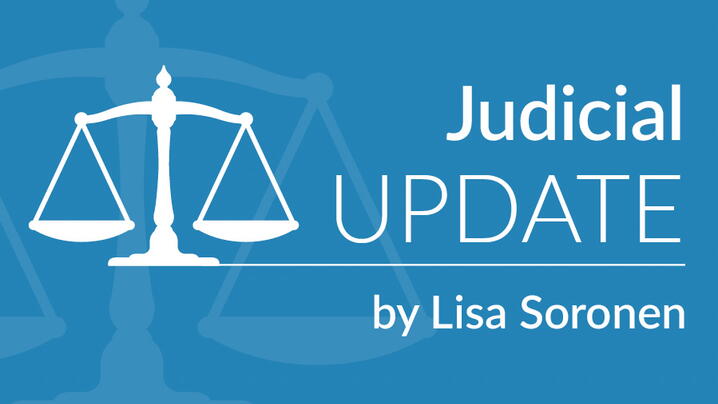
by Lisa Soronen, executive director, State and Local Legal Center
The State and Local Legal Center (SLLC) has been waiting for this day for a long time. In Kisor v. Wilkie, the Supreme Court will decide whether to overturn Auer deference to federal agencies.
In Auer v. Robbins (1997), the Supreme Court reaffirmed its holding in Bowles v. Seminole Rock & Sand Co. (1945) that courts must defer to a federal agency’s interpretation of its own regulations, even if that interpretation is articulated for the first time in an amicus brief during litigation.
Local and state governments have long been critical of Auer deference of a number of reasons. First, it gives agencies a lot of authority in every area in which any agency regulates. Second, Auer deference negatively affects state and local governments because they are regulated by federal agencies and regulate in the same space as federal agencies.
The court’s grant of this petition isn’t all that surprising. Neither will it be surprising if the court overturns Auer deference. Recently, all five of the conservative Justices, except Justice Kavanaugh—perhaps only due to his short tenure on the court, have either written or joined an opinion criticizing Auer deference or agency deference more generally.
In Kisor v. Wilkie, the Federal Circuit deferred to the Veterans Administration’s (VA) definition of “relevant” when determining whether a veteran’s claim for benefits can be reconsidered.
James Kisor is a Vietnam veteran who participated in Operation Harvest Moon. In 1983, a VA psychiatrist, while noting Kisor’s participation in this operation, determined he didn’t have PTSD. As a result, Kisor was denied disability benefits. In 2007, Kisor was diagnosed with PTSD and the VA gave him full disability benefits prospectively. Kisor also asked the VA to “reconsider” his case and provide him with an effective date of benefits of 1983.
Per regulation, VA’s receipt of “relevant official service department records that existed and had not been associated with the claims file when VA first decided the claim” allow an application to be reconsidered. Kisor claimed that his combat history document and other paperwork from 1983, which documented his participation in Operation Harvest Moon, were such records.
Kisor didn’t argue that these records show that he was diagnosed with PTSD in 1983. Instead he claimed that these records were “relevant” “because they speak to the presence of an inservice stressor, one of the requirements of compensation for an alleged service-connected injury.” The VA claimed they were not “relevant” because “they addressed the matter of an in-service stressor, which was not ‘in issue,’ rather than the issue of whether he suffered from PTSD, which was ‘in issue.’”
Kisor argued for a broad definition of “relevant,” and the VA argued for a narrow definition. Deferring to the VA, the Federal Circuit adopted the VA’s narrow definition of “relevant” noting it isn’t “plainly erroneous or inconsistent” with the VA’s regulatory framework. The court denied Kisor retroactive benefits.
In 2016, SLLC filed a certiorari stage amicus brief in United Student Aid Funds v. Bible asking the court to overturn Auer deference. Interestingly, the Supreme Court is now considering overturning precedent in four cases this term.
New, Reduced Membership Dues
A new, reduced dues rate is available for CAOs/ACAOs, along with additional discounts for those in smaller communities, has been implemented. Learn more and be sure to join or renew today!
